Editor’s note: The information for this story includes excerpts from the citations provided by the Office of the Provost, the Office of the Vice President for Research, the Senate Advisory Committee on University Affairs and the University Press.
Twenty-six faculty members will be recognized for their teaching, scholarship, service and creative activities Wednesday in Rackham Assembly Hall.
Distinguished University Professorships recognize full or associate professors for exceptional scholarly and/or creative achievement, national and international reputation, and superior teaching skills. Created in 1947, each professorship bears a name determined by the appointive professor in consultation with her or his dean. Each professorship also carries an annual salary supplement of $5,000 and an annual research supplement of $5,000. The duration of the appointment is unlimited, and the title — without the salary and research supplements — may be retained after retirement. In addition, newly appointed Distinguished University Professors are expected to deliver an inaugural lecture during the first year of appointment. Honorees and their awards are:
• Jacquelynne Eccles, William McKeachie and Paul Pintrich Distinguished University Professor of Psychology and Education; professor of psychology, Department of Psychology, LSA; professor of education, School of Education (SoE); research professor, Research Center for Group Dynamics, Institute for Social Research (ISR)
• Rodney Ewing, Edward H. Kraus Distinguished University Professor of Geological Sciences, Department of Geological Sciences, LSA; professor of materials science and engineering, Department of Materials Science and Engineering; professor of nuclear engineering and radiological sciences, Department of Nuclear Engineering and Radiological Sciences, College of Engineering (CoE)
• William Fulton, Oscar Zariski Distinguished University Professor of Mathematics; Miner and Mary Ann Keeler Chair in Mathematics, Department of Mathematics, LSA
• A. Galip Ulsoy, C.D. Mote Jr. Distinguished University Professor of Mechanical Engineering; William Clay Ford Professor of Manufacturing, Department of Mechanical Engineering, CoE
• John Vandermeer, Asa Gray Distinguished University Professor of Ecology and Evolutionary Biology; Arthur F. Thurnau Professor, Department of Ecology and Evolutionary Biology, LSA
Distinguished Faculty Achievement Awards honor senior faculty who consistently have demonstrated outstanding achievements in the areas of scholarly research and/or creative endeavors; teaching and mentoring of students and junior faculty; service; and a variety of other activities. Up to five awards of $1,500 are made each year. Awardees include:
• Dennis Assanis, Arthur F. Thurnau Professor, Jon R. and Beverly S. Holt Professor of Engineering, Department of Mechanical Engineering, CoE
• Michael Imperiale, Arthur F. Thurnau Professor, professor of microbiology and immunology, Department of Microbiology and Immunology, Medical School
• John E. Jackson, M. Kent Jennings Collegiate Professor of Political Science, Department of Political Science, LSA
• Robert T. Kennedy, Hobart H. Willard Collegiate Professor of Chemistry, Department of Chemistry, LSA; professor of pharmacology, Medical School
• Henry Wellman, Harold W. Stevenson Collegiate Professor of Psychology, Department of Psychology, LSA; research professor, The Center for Human Growth and Development
Faculty Recognition Awards are intended for faculty early in their careers who have demonstrated substantive contributions to the university through achievements in scholarly research and/or creative endeavors; excellence as a teacher, adviser and mentor; and distinguished participation in service activities of the university. Eligible candidates include full professors with no more than four years at that rank, associate professors and assistant professors. Up to five awards of $1,000 each are made each year. Recipients include:
• Anne Curzan, Arthur F. Thurnau Professor, associate professor of English language and literature, Department of English Language and Literature; associate professor of linguistics, Department of Linguistics, LSA; associate professor of education, SoE
• Lori Isom, professor of molecular and integrative physiology; professor of pharmacology; director, Program In Biomedical Sciences, Medical School
• Webb Keane, professor of anthropology, Department of Anthropology, LSA
• Peter van Keken, professor of geological sciences, Department of Geological Sciences, LSA
• Thomas Zurbuchen, professor of space science, Department of Atmospheric, Oceanic and Space Sciences; professor of aerospace engineering, Department of Aerospace Engineering, CoE
University Undergraduate Teaching Awards are designed to honor faculty early in their careers who have demonstrated outstanding ability in teaching undergraduate students. Nominees must have an evident commitment to students; a record of innovation in teaching and learning; notable dedication to working effectively with a diverse student body; and a consistently positive effect on students’ intellectual/artistic development. Each year up to two awards of $1,000 will be made. Awardees:
• Mika LaVaque-Manty, associate professor of political science, Department of Political Science; associate professor of philosophy, Department of Philosophy, LSA
• Adela Pinch, associate professor of English, Department of English Language and Literature; associate professor of women’s studies, Department of Women’s Studies, LSA
University Press Book Awards are presented to members of the university teaching and research staff, including emeritus members, whose book has added the greatest distinction to the Press List. Selections are made from books published within a span of two calendar years. The cash value of the award is $750 and is apart from any royalties the book may have earned. Awardees:
• Joanne Leonard, Diane M. Kirkpatrick and Griselda Pollock Distinguished University Professor of Art and Women’s Studies; professor of art, School of Art & Design; professor of women’s studies, LSA
• Tobin Siebers, V. L. Parrington Collegiate Professor of Literary and Cultural Criticism, Department of English Language and Literature, LSA
Jackie Lawson Memorial Faculty Governance Award will go to:
• Daniel Moerman, William E. Stirton Professor Emeritus of Anthropology, Department of Behavioral Sciences, College of Arts, Sciences and Letters, UM-Dearborn
University Librarian Achievement Award is presented for exceptional distinction reflected in active and innovative career achievements in library, archival or curatorial services. The recipient will receive a $1,500 stipend. Awardee:
• Timothy Richards, director, Mardigian Library, UM-Dearborn
University Librarian Recognition Award honors an individual who holds a primary faculty appointment as librarian, archivist or curator with no more than eight years’ practice in the profession. Selection criteria include active and innovative early career achievements in library, archival or curatorial services. This may include developing specialized services for faculty and students, improving access to information or efficiently managing library and archival resources (staff, space, funding, collections), or other activities. The recipient will be awarded $1,000. Awardee:
• Jennifer Green, spatial and numeric data librarian, Spatial and Numeric Data Services, Harlan Hatcher Graduate Library
Collegiate Research Professorship Award recognizes exceptional scholarly achievement and impact on advancing knowledge in science, engineering, health, education, the arts, the humanities or other academic field of study. A $2,000 stipend will be given to:
• Stephen Bougher, Andrew F. Nagy Collegiate Research Professor, Department of Atmospheric, Oceanic and Space Sciences, CoE
Research Faculty Achievement Awards are given for outstanding scholarly achievements, as represented by significant contributions to an academic field of study over time, a specific outstanding discovery or the development of innovative technology. Nominees must hold at least a 75-percent appointment at the rank of research professor, research associate professor, research scientist or associate research scientist. Recipients receive $1,500 each and are selected by the vice president for research based on the recommendation of the research faculty awards committee. Honoree:
• Robert Schoeni, research professor, Survey Research Center, Population Studies Center, ISR; professor of economics, Department of Economics, LSA; professor of public policy, Gerald R. Ford School of Public Policy
Research Faculty Recognition Awards honor individuals who hold at least a 75-percent appointment at the rank of research associate professor, research assistant professor, associate research scientist or assistant research scientist. Selection criteria include exceptional scholarly achievements, as evidenced by publications and/or other scholarly activities in any academic field of study. The following recipients will be awarded $1,000:
• Daniel Kruger, research assistant professor, Department of Health Behavior and Health Education, School of Public Health (SPH)
• Sooryanarayana Varambally, research assistant professor, Michigan Center for Translational Pathology, Department of Pathology, Medical School
Distinguished University Professorship, Jacquelynne Eccles
One of the world’s pre-eminent developmental psychologists, Jacquelynne Eccles’ work in the area of personality and social development has had a major impact on our understanding of how different contexts shape adolescent development. She is the William McKeachie and Paul Pintrich Distinguished University Professor of Psychology and Education; professor of psychology, Department of Psychology, LSA; professor of education, SoE; and research professor, Research Center for Group Dynamics, ISR.
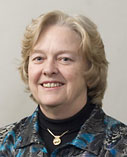
In particular, her large-scale longitudinal studies have provided important insights into gender differences in motivation and achievement, showing that these differences result from socialization processes in schools and families rather than from inherent biological differences. Her research and scholarship have had important policy implications for school reform, particularly in the redesign of middle schools to make them motivating and less stressful for adolescents.
Eccles’ scholarly reach is well illustrated by her leadership of the MacArthur Network on Successful Pathways through Middle Childhood, a major nine-year effort in which she fostered research alliances among individuals who would not otherwise have become aware of common interests.
Throughout her career, Eccles has published more than 200 articles, chapters and books, and has garnered about $20 million in grant awards. She has provided scientific leadership on many boards and panels. In addition, she has provided editorial leadership for the top journals in her field. In recognition of her achievements and acknowledgment of how fundamentally her scholarship has shaped the thinking of developmental scientists, she has won numerous awards and been honored by the leading national societies in psychology and child development.
In 2006 she received the Outstanding Mentor Award from the Developmental Psychology Division of the American Psychological Association for contributions “to developmental psychology through the education and training of the next generation of research leaders in developmental psychology.”
She has been a major leader, and now administrator, in the Combined Program in Education and Psychology. She currently serves on the Department of Psychology’s executive committee, and she also is active in various service roles at ISR, the Institute for Research on Women and Gender, and SoE.
Distinguished University Professorship, Rodney Ewing
A world leader in developing innovative, science-based approaches to solve the difficult technical challenges of nuclear waste management, Rodney Ewing has been a leading figure internationally in the quest to understand radiation damage in both natural and man-made materials.
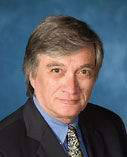
Ewing is the Edward H. Kraus Distinguished University Professor of Geological Sciences Department of Geological Sciences, LSA; professor of materials science and engineering, Department of Materials Science and Engineering; and professor of nuclear engineering and radiological sciences, Department of Nuclear Engineering and Radiological Sciences, CoE. He has been an important force behind the use and application of natural mineral analogues, mineralogical science and mineralogical methods to developing new nuclear waste forms and advancing the understanding of nuclear waste form behavior in geologic repositories over geologic time.
Ewing’s scholarly publication output includes 347 research publications in peer-reviewed journals, 232 papers in conference proceedings and 13 chapters in books. His work has appeared in a wide range of publications, including prominent journals such as Science and Nature. His research, which encompasses nuclear materials and radiation effects in ceramics and natural analogs, combines the most modern techniques of materials and glass science, solid state methods, ceramic science, nuclear materials and materials chemistry within the broader context of environmental interactions and geological science.
Among the many awards Ewing has received for his work, the highest and most recent is the 2006 Lomonosov Gold Medal from the Russian Academy of Sciences. The medal was awarded for Ewing’s research on materials science in support of advanced nuclear fuel cycles, particularly on radiation effects in materials and the safe disposal of nuclear wastes.
Ewing initiated a review of the undergraduate program in geological sciences, and he has welcomed undergraduates into his laboratory. He also has been an effective mentor of graduate and post-graduate students.
Ewing’s service record has likewise been extraordinary. He is a member of 17 scientific organizations and a fellow of six of them. Since coming to U-M in 1997, he has served on numerous departmental committees, including the executive committee.
Distinguished University Professorship, William Fulton
William Fulton, the Oscar Zariski Distinguished University Professor of Mathematics; and Miner and Mary Ann Keeler Chair in Mathematics, Department of Mathematics, LSA, is an internationally renowned scholar who has had a huge impact on the mathematics department and its standing in the scientific community.
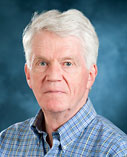
His contributions to algebraic geometry and related fields, his award-winning books, his leadership and exposition have all been recognized nationally and internationally. He is respected among colleagues as a senior authority not only in matters of mathematical fact but also in questions of mathematical value, taste, depth and direction.
The author of many successful books, Fulton has made contributions to a wide range of mathematical disciplines, but his primary work has been in algebraic geometry, a field at the center of mathematics. He is the senior member of the algebraic geometry group at U-M, which is, according to one reviewer, “the leading center of algebraic geometry in the United States and arguably the best in the world.” In his research, writing and teaching, he has shaped large parts of the landscape of contemporary algebraic geometry. In 1996 his book “Intersection Theory” was awarded the Leroy P. Steele Prize for Mathematical Exposition by the American Mathematical Society.
Fulton was elected to the National Academy of Sciences in 1997 and to the American Academy of Arts and Sciences in 1998. In 2000 he was named a Foreign Member of the Royal Swedish Academy of Sciences. Furthermore, he has held visiting appointments at many of the most important institutions in the United States and Europe. In 2005 Fulton was selected as the Henry Russel Lecturer, the highest faculty award at U-M. In 2007 he was invited to give three major series of lectures: the Eilenberg Lectures at Columbia, the Goran Gustafsson Lectures at the KTH, Stockholm, and the Marston Morse Lectures at the Institute for Advanced Study.
Fulton believes that an important task for a scientist is to train the next generation, and he has put this belief into action. His devotion to the cause of education has been a consistent theme throughout his career. He has had 23 doctoral students, some of whom are recognized leaders in their fields and others who are rising stars.
Distinguished University Professorship, A. Galip Ulsoy
A. Galip Ulsoy, the C.D. Mote Jr. Distinguished University Professor of Mechanical Engineering; and William Clay Ford Professor of Manufacturing, Department of Mechanical Engineering, CoE, is an internationally recognized researcher and educator in the area of dynamic modeling, analysis and control of mechanical systems. He employs analytical, experimental and numerical methods in his work, which spans the full range from basic to applied research.
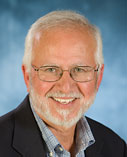
Ulsoy made fundamental contributions in his early research on dynamic analysis and control of rotating and translating elastic systems, and he is known worldwide for his pioneering contributions to the application of advanced control theory to the monitoring and control of manufacturing processes. Most of all, he was one of the first people in the country to establish and lead the field of reconfigurable manufacturing systems, which now is a transformative paradigm in manufacturing.
Ulsoy is founding director of Michigan’s Program in Manufacturing, which awards Master of Engineering and Doctor of Engineering degrees. He also initiated the Master of Engineering Program in Manufacturing by distance learning to General Motors sites around the world.
The author of more than 130 journal articles and 130 conference papers in the highest quality proceedings, Ulsoy has received prestigious awards for his research at every stage of his career: the ASME Outstanding Young Engineer Award in 1986, the AACC Hugo Shuck Best Paper Award at the 1994 American Control Conference, the Rudolf Kalman Best Paper Award in 2003 and the Henry M. Paynter Outstanding Investigator Award in 2004. In 2006 he was elected to the National Academy of Engineering, the highest recognition in engineering, and in 2008 he received the Rufus T. Oldenberger Medal from the American Society of Mechanical Engineers, the highest recognition in the field of dynamic systems and control.
Ulsoy has made contributions to education through curricular innovations and a willingness to spend extra time with students.
He has served as chair, associate chair and graduate program chair of the department; as founding deputy director of the Engineering Research Center for Reconfigurable Machining Systems; as founding director of the Program in Manufacturing and of the Industry-University Cooperative Research Center; as founding director of the Ground Robotics Center; and as a member of the executive committee of CoE.
Distinguished University Professorship, John Vandermeer
An outstanding interdisciplinary scholar who has successfully applied sophisticated theoretical knowledge to critical environmental problems, John Vandermeer, the Asa Gray Distinguished University Professor of Ecology and Evolutionary Biology; and Arthur F. Thurnau Professor, Department of Ecology and Evolutionary Biology, LSA, is a world authority on complex issues of sustainable agriculture and rain forest conservation. His effective and inspiring leadership has made him a major force in setting rigorous scientific standards to inform public policy decision-making nationally and internationally. Most unusual, he has carried his scientific knowledge into the social and political world to deal with some of the most pressing human problems.
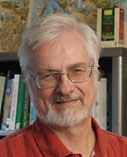
Over the course of his long career at U-M, Vandermeer has been a diverse and productive scholar, with 13 books, including two in press this year alone, and more than 190 scholarly articles and book chapters, as well as numerous other articles communicating scientific concerns to the public. His scholarship has been primarily in three major areas of ecology: theoretical ecology, tropical rain forest ecology and agricultural ecology. Much of his field research has been focused on problems of concern to the rural poor of Latin America, most notably his major research focus in alternative tropical agriculture and forestry. He is recognized as one of the world’s greatest theorists on the ecology and economics of mixed cropping and agroecosystems in general.
Vandermeer constantly challenges his students to think about the ethical issues behind science. He regularly teaches more than the required number of courses, including an immensely popular course for non-majors, Biology and Human Affairs, which introduces students to current issues of fundamental social and economic importance. Another substantial component of his teaching is an advanced field ecology course that students find exhausting but exciting. His influence has been life-changing for many graduate students, and the scope of his research interests is seen in the diversity of positions his students have moved into, not only academic posts but also public service and environmental activism. His teaching record has been recognized by his appointment as a Thurnau Professor and his receipt of a Sokol Award for graduate mentoring.
Distinguished Faculty Achievement Award, Dennis Assanis
A world-renowned scholar and expert in fundamental studies of internal combustion engines and automotive powertrain engineering, Dennis Assanis, Arthur F. Thurnau Professor, and Jon R. and Beverly S. Holt Professor of Engineering, CoE, has brought about the renaissance of automotive research and education at U-M. His leadership and passion for scholarly research have transformed the W. E. Lay Automotive Laboratory into a beehive of activity that is recognized for its excellence among academic, industry and national laboratories.
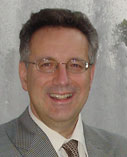
Assanis’ research has had a significant influence on both fundamental knowledge and practical technology. His engine simulation models are widely used by engine researchers and developers to improve vehicle fuel economy while satisfying ultra-stringent emissions standards.
With more than $100 million in research funding from a range of sources, Assanis has an exceptional research record in terms of quantity, quality, visibility and impact. His research in modeling and experimental testing of internal combustion engines has been at the leading edge of the field for more than 25 years. His achievements have been recognized by many prestigious awards. Most notable was his recognition in 2008 as a member of the National Academy of Engineers, the ultimate honor in engineering.
Assanis has founded one of the most successful graduate degree programs at U-M, the Master of Automotive Engineering, designed specifically for industry engineers, a program that has now graduated hundreds. He is a role model and mentor for his graduate students, and has advised more than 50 doctoral students and 100 Master in Engineering students. He has created a laboratory where students have unusual opportunities to explore state-of-the-art technologies. He ensures that students work on problems that are relevant to society and leave his laboratory ready to realize their full potential as scientists and future academicians.
For six years, Assanis served as chair of the Department of Mechanical Engineering. During that period he led initiatives to create a vision of modern mechanical engineering that included reinvigorating its traditional strength in mechanics, manufacturing, energy systems and automotive engineering, and building in new areas of nano-systems, biological systems and alternative energy production. Because of his leadership and vision, the department developed a plan of expansion and remodeling of existing facilities, which has now become a top building priority plan of the university.
Distinguished Faculty Achievement Award, Michael Imperiale
An internationally recognized expert in the field of small DNA tumor viruses, Michael Imperiale, an Arthur F. Thurnau Professor, and professor of microbiology and immunology, Department of Microbiology and Immunology, Medical School, is one of the most productive and effective innovators in his field.
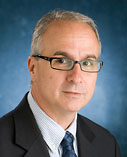
Imperiale’s laboratory has a longstanding history of significant research findings in a wide variety of topics related to tumor virology, viral replication and pathogenesis, gene therapy, and gene expression. The importance of his research is reflected in his recent election as chair of the DNA virus division of the American Society for Microbiology, the world’s largest society of biological scientists.
With the recent appreciation that up to 15 percent of all human cancer is caused by viruses, Imperiale’s foresight in choosing the field of tumor virology is evident. His research centers on the molecular biology of a group of viruses that can cause tumors in experimental animals and humans. He has focused on two viruses, adenovirus and BK virus. Viruses must reproduce inside of host cells, and much of Imperiale’s work has to do with the interaction of a virus with its host cell and how the virus assembles before it leaves a host cell.
Imperiale also has pursued experiments aimed at demonstrating the utility of adenovirus as a recombinant vaccine vector. The research done by his laboratory group could eventually prove useful in creating a vaccine to protect against anthrax, without the side effects the current vaccine produces.
Apart from his own research, Imperiale is influential in virology research through his role as a senior editor at the Journal of Virology. He also is the co-author of the chapter on polyomaviruses in Fields Virology.
Consistently praised as a highly effective teacher, Imperiale excels both as a classroom teacher and as a mentor in the laboratory. In 2000 he was recognized in the Medical School for his teaching with the Medical Student Award for Teaching Excellence.
He served as chair of the Institutional Biosafety Committee from 2000-08. He has served on the Medical School’s executive committee and took on the responsibilities of associate chair in his department. Since July 2005 he has been a member of the National Science Advisory Board for Biosecurity.
Distinguished Faculty Achievement Award, John E. Jackson
A highly respected figure in the social sciences, John E. Jackson, the M. Kent Jennings Collegiate Professor of Political Science, Department of Political Science, LSA, is recognized especially as a leader in redefining the subfield of political methodology and co-founding the Political Methodology Society. His many books and articles develop important new approaches and insights. His work has been recognized with numerous awards, most prominently, being elected to the American Academy of Arts and Sciences and receiving the career achievement award from the Political Methodology section of the American Political Science Association, its top award.
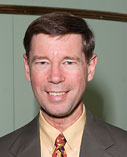
Jackson’s research is in political methodology, political behavior, political economy and political institutions, and provides valuable new understanding in each area. He pioneered bringing advanced statistical methods to bear on politics in a substantive way. His 1977 book with Eric Hanushek, “Statistical Methods for Social Scientists,” is considered one of the best texts for political methodology. In addition to his methodological work, he has made important contributions to the study of public opinion, electoral politics and Congress.
During Michigan’s economic crisis in the 1980s Jackson returned to the field of political economy to study entrepreneurship and how it is the basis for growth and renewal. He co-authored a book, “The Political Economy of Poland’s Transition: New Firms and Reform Governments,” which received the highest award the Polish government gives in social science. In showing how the growth of new businesses provided economic growth and political stability in Poland, this book and a body of related papers contribute to the understanding of economic and democratic transitions.
Jackson devotes much of his career to teaching and mentoring graduate students and junior faculty. His intense mentoring style makes students full partners in the research process. For undergraduates, a number of whom maintain contact after graduation, he is a dedicated, resourceful and demanding teacher.
Finally, Jackson builds and sustains institutions. He makes contributions to the university and to the scholarly community as a whole. He was the founding director of the Program in American Institutions and is an active participant in various centers within the university. As chair of the Department of Political Science from 1994-99, he guided the department successfully and skillfully through an important period of mandated retrenchment and then regeneration.
Distinguished Faculty Achievement Award, Robert T. Kennedy
A gifted scientist who has been consistently among the top bio-analytical chemists in the world, Robert T. Kennedy has, since the very beginning of his career, made notable contributions to his field.
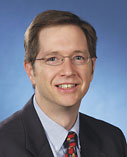
Kennedy, the Hobart H. Willard Collegiate Professor of Chemistry, Department of Chemistry, LSA; and professor of pharmacology, Medical School, is defining the interface between biology and analytical chemistry and is recognized as one of very few prominent international scholars in this research field. He has pioneered a number of analytical methods aimed at elucidating the underlying molecular mechanisms associated with endocrine and neurological diseases.
Kennedy’s research has focused on tackling one of the most challenging areas of contemporary analytical chemistry, namely the real time measurement of biologically important molecules in vivo with high sensitivity and selectivity. His work is oriented toward development of new micro-analytical instrumental approaches that will provide invaluable analytical information to our understanding of brain chemistry and of fundamental processes that lead to diabetes at the cellular level. The technology he developed continues to have an impact on a wide range of neuroscience research.
Kennedy has published some 150 papers and they have been widely cited. He has received significant external funding and substantial national recognition in the form of awards and fellowships, among them a prestigious Sloan Fellowship, a Beckman Young Investigator Award and a Presidential Faculty Fellowship from the National Science Foundation, and recently he was elected as a fellow of the American Association for the Advancement of Science. Further, in recognition of his outstanding contributions toward the development of analytical methods to study diabetes and brain chemistry at the cellular level, he was awarded two special MERIT 10-year research award grants by the National Institutes of Health.
Moreover, Kennedy is equally talented as a teacher and mentor. Since beginning his academic career in 1991, he has served as research advisor for 33 doctoral students (not counting his current group) and 15 post-doctoral associates, many of whom hold faculty positions at major institutions.
Kennedy has served on the editorial boards of a number of publications, as well as serving as editor for “The Analyst and the Journal of Chromatography A.” He has chaired a number of conferences and serves on several conference organizing committees.
Distinguished Faculty Achievement Award, Henry Wellman
One of the most prominent developmental psychologists of his generation, Henry Wellman has been a pioneer in studying the cognitive development of children and in discovering a number of foundational skills that underlie their understanding of the world around them.
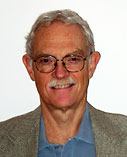
Wellman, the Harold W. Stevenson Collegiate Professor of Psychology, Department of Psychology, LSA; and research professor, The Center for Human Growth and Development, is one of a few researchers who essentially created the subfield of “theory of mind” research. The field of developmental psychology — and the field of psychology as a whole — has been shaped by his ideas and research findings. His two books, “The Child’s Theory of Mind” and “Children Talk about the Mind,” now are classics.
Theory of mind refers to the everyday human understanding of people in terms of the internal mental states (beliefs, desires, emotions, intentions) that produce and explain their actions and lives. Wellman’s research on the child’s theory of mind stems from a carefully detailed and documented conviction that a theory of mind provides a model of a core cognitive domain, a cognitive structure that frames and encourages further developments; in this way, children engage in a social world of other humans from infancy. Beyond infancy, his focus on language is key, because children’s developing understanding of mental terms (“think,” “know,” “wish,” “want,” “happy,” “sad”) provides a window into a child’s developing understanding of the mental world. These ideas and research have succeeded in transforming the pursuit of developmental psychology during the past 20 years.
What began as a relatively small and self-contained area of research has tremendously expanded, as researchers have documented links between theory of mind and other crucial issues.
His contributions has received many awards, including an NIH MERIT Award in 2005, which funds his work for 10 years, and he is the current president of the Cognitive Development Society.
Wellman is a senior leader in his department, serving on major search committees and on promotion panels. For many years he was chair of the developmental psychology area, the top-ranked developmental program in the country, and he also has served as associate director of the Center for Human Growth and Development.
Faculty Recognition Award, Anne Curzan
In her seven years at U-M, Ann Curzan, Arthur F. Thurnau Professor, associate professor of English language and literature, Department of English Language and Literature; associate professor of linguistics, Department of Linguistics, LSA; and associate professor of education, SoE, has built a remarkable record of achievement in all areas of academic activity — research, teaching and service. Accolades for her “stellar intellectual and professional accomplishments” in multiple areas are numerous. In 2007 she won both the Henry Russel Award and a Thurnau professorship.

Curzan’s central scholarly work is in English diachronic syntax and semantics, the study of how the English language has changed and developed over time. More particularly, because of her 2003 book “Gender Shifts in the History of English,” she has been called “the leading authority on issues of grammatical gender in the history of English.” This book, which is a synthesis of historical linguistics, corpus linguistics and sociolinguistics, has commanded a large and diverse audience of students, linguists, cultural and literary historians, and general readers.
With a background in both linguistics and English language and literature, Curzan has wide-ranging interests and capacities, all of which she pursues with the same passion and competence that she brings to her central work in diachronic syntax and linguistic gender. She is a serious student of semantics and lexicography and an expert on North American English. And she has an intellectual passion for all issues that involve teaching, teacher training, the politics of pedagogy and classroom dynamics. She has co-authored both a book on teaching, “First Day to Final Grade,” and a textbook in her field of study, “How Language Works,” among her many other publications. She currently is working on two more books on the history of the language.
Her teaching of both undergraduate and graduate students is called “transformative” — for colleagues and other teachers as well as for students. She also has been invited to speak about teaching on campuses around the country and internationally.
In Curzan’s service to the Department of English, she successfully fashioned and instituted a radical revision of the undergraduate curriculum, and has taken on the task of directing the first-year writing program.
Faculty Recognition Award, Lori Isom
Called “one of the best ion channel biologists in the world,” Lori Isom has made a difference in the laboratory as an investigator and in the lecture hall as a teacher.
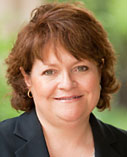
Isom, professor of molecular and integrative physiology; professor of pharmacology; and director, Program In Biomedical Sciences, Medical School, has focused her efforts on creating an intimate, friendly and productive environment in which members of her laboratory work toward a common goal of further understanding sodium channel biology. Her work on Na+ channels, the ion channels that act as batteries to produce nerve impulses, is relevant to nerve injuries and neurological diseases such as epilepsy and multiple sclerosis.
Ion channels are important molecules that endow the nerve cells within our brains and spinal cords with the ability to generate electrical impulses, thereby allowing us to think, feel, move and do all the things that make us human.
Isom’s laboratory has been a leader in the development of mouse and zebrafish models that can be used to investigate the mechanisms underlying Na+ channel mutations in vivo. With her expertise in cloning genes and the expression of the proteins of these cloned genes in in vitro and in vivo systems, she is able to use the tools of molecular biology to investigate questions about important problems in pharmacology and physiology.
During her years at U-M, Isom has made numerous observations and contributions to the understanding of Na+ channels, their assembly, structure and function, and their role in modulating the electrical excitability of neurons and cardiac myocytes. She has obtained competitive funding from many sources and her work has been cited in more than 1,500 articles. She has been invited to speak about her research at universities and conferences worldwide, and she has been recognized as an Established Investigator of the American Heart Association.
From the time she joined the Department of Pharmacology, Isom has been highly sought after by graduate students as a thesis mentor. Twenty-eight students have rotated through her laboratory, and she has served on the thesis committees for 23 graduate students.
Faculty Recognition Award, Webb Keane
Regarded by many as the single most accomplished philosophical anthropologist writing in the United States at the present time, Webb Keane is at “an astonishing peak of productivity and creativity.” Webb, professor of anthropology, Department of Anthropology, LSA, is regarded by many in the profession as an exemplar of everything for which the discipline should stand.
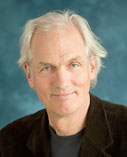
A specialist in Indonesia, Keane consistently has explored the relationships between the material and the immaterial and between intentionality and structure. He has taken two areas that seem least promising for a study of material culture, those of language and belief, and in both cases shown that there was a huge benefit in approaching both topics from the point of view of their essential materiality, that is, the forms they have to take in the world and the consequences this has for the people that use language and live with belief. In his best-known work, “Signs of Recognition,” he explores these issues through an ethnography. This book has become a classic in Southeast Asian studies and in semiotically oriented branches of anthropology.
Keane then shifted his focus from Sumbanese indigenous religion to a study of their conversion to Christianity. This work culminated in his second book, “Christian Moderns: Freedom and Fetish in the Mission Encounter,” which examines the century-long encounter between Dutch Calvinist missionaries and the Indonesians they tried to convert. This book has brought high acclaim and attracted a worldwide readership. At its annual meeting, the American Anthropological Association sponsored a symposium specifically focused on “Christian Moderns”; another will be held this fall by the American Academy of Religion.
Webb now has turned to the study of Indonesian national culture and media, involving comparisons with media production and journalism elsewhere. His third book is tentatively entitled “Nation and Mediation in Indonesia.”
Keane has gained recognition for his ambitious scholarly work. He has received a Guggenheim Fellowship and fellowships at the Institute for Advanced Study at Princeton, the Center for Advanced Study in the Behavioral Sciences (Stanford), and the Institute for the Humanities. He has presented both the Edward Westermark and the Annette Weiner Memorial Lectures, which are internationally recognized.
In addition to his scholarly work, Webb has developed a well-deserved reputation as a teacher and mentor.
Faculty Recognition Award, Peter van Keken
Peter van Keken, professor of geological sciences, Department of Geological Sciences, LSA, has had a dramatic impact on research in his field and in fields around him through his own research and that of his students, his highly influential editorial work on journals, and his participation in workshops and research meetings.
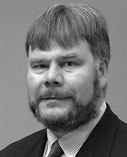
van Keken, a geophysicist, has focused his research efforts on the dynamics of the Earth’s interior through the study of mantle convection. He develops and uses computational techniques to simulate convection in the mantle, and uses these methods to study fundamental processes. He and his students have published widely cited research on the nature of tectonic plates that move across Earth’s surface, on the fate of these slabs as they sink into earth’s mantle, and on the nature and preservation of chemical heterogeneities in the mantle. These studies are directly relevant to other work, ranging from the nature of earthquakes to the origin of the planet.
van Keken’s research, published in numerous first-order scientific journals, has been noticed by the wider scientific community, and he has been very effective in becoming involved in scientific groups that further his own research goals. In particular, he has been a key member of the steering committee for the MARGINS Program that has been funded by the National Science Foundation to understand processes along the margins of Earth’s continents. He has been successful in funding his research, and the large number of investigators involved in these grants indicates the highly interdisciplinary and collaborative nature of his work. Additional evidence of his success is seen in the large number of invited lectures he has delivered around the world.
The high regard of the scientific community is shown in its appointment of van Keken as one of three senior editors of Geochemistry, Geophysics, Geosystems, an online journal published by the American Geophysical Union and the Geochemical Society that in 2008 published more than 250 papers.
van Keken has taught numerous different courses, and though trained as a geophysicist, he has taken great interest in teaching field projects at Camp Davis.
He has served two sessions on the department’s executive committee and has served almost continuously on the curriculum committee.
Faculty Recognition Award, Thomas Zurbuchen
One of the top two or three young scientists in the entire field of space plasma physics, Thomas Zurbuchen has rapidly progressed to become a nationally and internationally recognized leader in the field of heliophysics. He also is an innovative educator, a facilitator of university-industry partnerships and a public speaker for science.
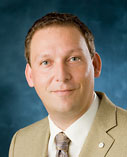
Zurbuchen, professor of space science, Department of Atmospheric, Oceanic and Space Sciences; and professor of aerospace engineering, Department of Aerospace Engineering, CoE, conducts research on the sun and its extension into space to form the heliosphere with the local interstellar medium. He does so in the broadest sense, analyzing and interpreting data from ongoing space missions, performing theoretical studies and developing new innovative instruments for flight on NASA missions. His work has been outstanding, with first-authored papers of particularly high quality. His publications have approximately 1,000 citations thus far. Recently he published an invited review paper on the solar wind in the Annual Reviews of Astronomy and Astrophysics.
For the future, Zurbuchen has established a leading experimental program in space physics, developing novel instruments for measuring the composition of thermal and suprathermal ions in space plasmas. His Fast Imaging Plasma Spectrometer, developed for the NASA MESSENGER Discovery mission, is state-of-the-art for such instrumentation.
Zurbuchen was recognized in 2004 with the National Science and Technology Council Presidential Early Career for Scientists and Engineers Award, the highest award the nation offers to a young researcher in science and technology.
He has provided research opportunities for more than 50 undergraduates and has served on 18 doctoral and Master of Science students’ committees.
Until recently, Zurbuchen also has been advisor to the Master of Engineering Program in Space Systems and has been responsible for the design course in this program. Furthermore, he undertook the task of establishing a Center for Entrepreneurship to educate and encourage students in entrepreneurialism and to assist the university’s efforts to spin off technologies and help diversify the economy in Michigan, and he is the center’s first director. For his outstanding service contributions to the university and beyond, Zurbuchen was awarded the Service Excellence Award by CoE in 2005.
University Undergraduate Teaching Award, Mika LaVaque-Manty
Mika LaVaque-Manty is a faculty member who believes that teaching undergraduates is absolutely core to the mission of the university. LaVaque-Manty, associate professor of political science, Department of Political Science; and associate professor of philosophy, Department of Philosophy, LSA, has an acute awareness of the civic responsibility of teaching in a large public institution and throws himself into his courses. He challenges students to raise their own expectations, to go beyond what they thought were their limits, and then helps them create a path to reach their goals.

Students look forward to LaVaque-Manty’s lectures and remember them long after they’ve completed the courses, describing them as highlights of their college experience. In the wide range of courses he has taught in his eight years at U-M, from large undergraduate lecture courses to graduate seminars, student evaluations are consistently near the top of the scale.
LaVaque-Manty’s unparalleled technological expertise allows him to make unusually effective use of teaching technology. He uses PowerPoint to promote structured note-taking, and he posts podcasts of his lectures on the Internet and uses interactive tools to track student responses to material in the lectures.
Outside the classroom, LaVaque-Manty displays respect for students and enthusiasm for working with them. He has supervised more than 20 undergraduate independent studies and honors theses and has been on 23 dissertation committees.
When students are asked to propose outstanding teachers, LaVaque-Manty consistently is nominated, and he already has received a number of teaching awards: Political Science’s Tronstein Award in recognition of innovative teaching in 2005, the U-M’s Class of 1923 Memorial Teaching Prize in 2007 and the national Pi Sigma Alpha Teaching Award from the American Political Science Association, also in 2007.
LaVaque-Manty also has been involved in broader efforts to improve students’ experiences. As the political science honors director in 2007-08, he began a restructuring of the program, taught seminars for both juniors and seniors, and developed a new introductory course on research methods. He continues as the department’s honors director and also serves on a faculty advisory board for the LSA Honors Program and on the LSA Curriculum Committee.
He has published two books, five articles and three book chapters, and has presented 21 research papers at professional conferences.
University Undergraduate Teaching Award, Adela Pinch
Adela Pinch, associate professor of English, Department of English Language and Literature; and associate professor of women’s studies, Department of Women’s Studies, LSA, is able to make a lecture course with 100 students feel as personal as a small seminar discussion. By encouraging students to actively participate, work in small groups and present their opinions in front of classmates, she creates a dynamic classroom environment.
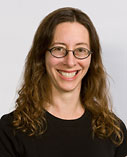
Pinch has taught a wide range of courses, and every class she teaches is shaped by her dedication to her students and to the many different ways in which they learn. Her courses combine scholarly rigor with literary pleasure, and her creative assignments broaden students understanding of the historical context of the literary works they are studying.
She is a scholar of British romanticism, a major movement within English literary history that can seem inscrutable and daunting to college students. She has devised several courses that make Romanticism approachable through particular topics, such as consumerism, gender and the Gothic. As faculty associate of women’s studies, Pinch also devotes time and energy to teaching students outside the English department. In 2007 Pinch, together with Professor Kathryn Dominguez of the Department of Economics, was awarded a Gilbert Whitaker Award for the Improvement of Teaching from the Center for Research on Learning and Teaching, for their innovative interdisciplinary course proposal on Jane Austen and Economics.
Pinch dedicates extensive time to teaching and mentoring outside of the classroom, as well. She is popular as an advisor of undergraduate honors thesis writers and has provided crucial assistance in the production of many such lengthy essays, both as an individual advisor and as instructor of English 495 (Drafting the Honors Thesis). Her honors thesis writers speak of her scrupulous attention to their works-in-progress — “always judicious, never blindly positive or lax, always analytical and careful. Better yet, I enjoyed every minute I spent speaking with her,” says one.
Pinch has demonstrated her enthusiasm for teaching in numerous ways. In 2005 she was awarded the Department of English Excellence in Undergraduate Teaching Award.
University of Michigan Press Book Award, Joanne Leonard
In her 30 years at U-M, Joanne Leonard, the Diane M. Kirkpatrick and Griselda Pollock Distinguished University Professor of Art and Women’s Studies; professor of art, School of Art & Design; and professor of women’s studies, LSA, has established herself as a noted artist and photographer. Her work has widely been exhibited and frequently reproduced in publications, including “Gardner’s Art through the Ages,” Janson’s “History of Art” and the “Time-Life Library of Photography.”
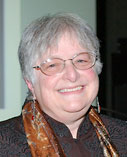
Now her visual/textual autobiography, “Being in Pictures: An Intimate Photo Memoir,” published in 2008, is one of the winners of the 2009 U-M Press Book Award. The award was established in 1965 and is presented to members of the teaching and research staff whose book, published by the U-M Press, has added the greatest distinction to the Press List.
“Being in Pictures” interweaves Leonard’s photography and collage work with an account of an artist’s life and creative processes. Her evocative and almost dreamlike creations have over four decades revealed “the tensions between realism and idealization” that exist in both photography and photocollage. Beginning with her earliest work — which recorded with equal energy and devotion the 1972 Winter Olympics, her neighborhood in inner-city Oakland, a kitchen countertop and her own family — she worked to develop a photographic genre she called “intimate documentary.”
As her art evolved, Leonard began to challenge the boundary between personal and public images, and her work turned to autobiographical and daringly intimate, often feminist, themes, including the end of her marriage, a devastating miscarriage and single motherhood. Her portraits of her daughter Julia from birth onward constitute one of the most extensive and expressive portrayals by any photographer of a child’s journey to adulthood.
“Being in Pictures” also explores notions of identity and loss, as Leonard probes in word and image the meanings of being a twin, her conflicted feelings toward an emotionally distant father who escaped the Nazis and her response to her highly accomplished mother’s slow decline resulting from Alzheimer’s disease.
The book’s nearly 200 reproductions include a wide selection of black and white photographs as well as her vivid, richly nuanced collages.
U-M Press Book Award, Tobin Siebers
” ‘Disability Theory’ is just the book we’ve been waiting for,” according to a review of Tobin Siebers’ 2008 book, one of two winners of this year’s U-M Press Book Award. The award, established in 1965, is presented to members of the teaching and research staff whose book, published by the U-M Press, has added the greatest distinction to the Press List.
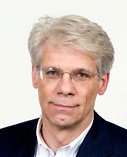
“Clear, cogent, compelling analyses of the tension between the ‘social model’ of disability and the material details of impairment; of identity politics and unstable identities; of capability rights and human interdependence; of disability and law, disability as masquerade, disability and sexuality, disability and democracy — they’re all here, in beautifully crafted and intellectually startling essays,” the reviewer says.
The author of nine books and editor of several others, Siebers, the V. L. Parrington Collegiate Professor of Literary and Cultural Criticism, Department of English Language and Literature, LSA, also has published numerous articles, critical essays and reviews, all on a wide range of subjects. His principal contributions to literary and cultural criticism have been in ethics. Other areas include disability studies, aesthetics and politics of identity, literary criticism of the cold-war era, psychoanalysis, literature and anthropology, and creative nonfiction.
In “Disability Theory,” Siebers says he “takes issue with those who believe that identity politics either springs from disability or disables people for viable political action. I offer a defense of identity politics,” he says, “and a counterargument to the idea embraced by the right and left, that identity politics cannot be justified because it is linked to pain and suffering. The idea that suffering produces weak identities both enforces the ideology of ability and demonstrates a profound misunderstanding of disability: disability is not a pathological condition, only analyzable via individual psychology, but a social location complexly embodied.”
Siebers argues that disability studies transfigures basic assumptions about identity, ideology, language, politics, social oppression and the body. At the same time, he advances the emerging field of disability studies by putting its core issues into contact with signal thinkers in cultural studies, literary theory, gender studies and critical race theory.
Jackie Lawson Memorial Faculty Governance Award, Daniel Moerman
Daniel Moerman is the 2009 recipient of the Jackie Lawson Memorial Faculty Governance Award. Like the woman for whom the award is named, Moerman, the William E. Stirton Professor Emeritus of Anthropology, Department of Behavioral Sciences, College of Arts, Sciences and Letters, UM-Dearborn, taught on the UM-Dearborn’s campus. He started his career there in 1973 and served for more than three decades.
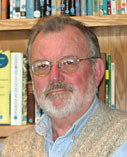
The Jackie Lawson Memorial Faculty Governance Award honors Lawson, a professor of English and Communications at UM-Dearborn from 1985-2000. She was committed to faculty governance and to strengthening relationships among the university’s three campuses. At the time of her death, Lawson was serving as chair of the Senate Advisory Committee on University Affairs (SACUA), the first faculty member from one of the regional campuses elected to that position.
Moerman was the first faculty member from Dearborn to serve on SACUA. As a member of the Honorary Degrees Committee, he wrote the citation for Nelson Mandela’s honorary degree. During his long service on the General Counsel Advisory Committee, his advice and intervention were important in a number of areas of university life.
Faculty governance on the Dearborn campus took decades to develop. The current form, with a Faculty Senate, has been the most stable and enduring. Moerman was the first president of the new Faculty Senate in 1993, a tumultuous time, during which the administration blocked many initiatives, as did several senators. Nonetheless, he was able to sketch out the general shape of an entirely new faculty governance system, which continues to present time.
Moerman was named the William E. Stirton Professorship in recognition of his “truly distinguished scholarship, teaching, and professional activity.” His research has primarily concerned the anthropological analysis of processes of human healing and, in particular, the impact people’s knowledge and understanding of health have on their well-being. He also has worked extensively with medicinal plants primarily of Native American peoples. He is the author of “Native American Ethnobotany,” which received the Annual Literature Award of the Council on Botanical and Horticultural Libraries for 2000. He is past-president of the International Society for Ethnopharmacology, and for four years served as editor in chief of the journal Economic Botany.
University Librarian Achievement Award, Timothy Richards
In his many years as director of the Mardigian Library at UM-Dearborn, Timothy Richards always has focused on how best to position the library to provide more and better service in support of faculty scholarship and student learning.
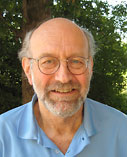
Libraries have changed dramatically over the past 20 years, requiring especially expert leadership. As library use changed from the printed word to broader information retrieval, Richards led the extraordinary transformations with apparent ease. He played a major role in anticipating the needs of both sophisticated users of online resources and the more traditional users of books and journals.
Included among the ways in which Richards took a leadership role and made meaningful progress are his highly collaborative work with colleagues on the Flint and Ann Arbor campuses to provide full access to the university’s electronic journal holding for all faculty, regardless of their campus affiliation; his efforts to create a green roof for the library to help conserve energy; and his initiation of a yearlong project with library staff to reconceptualize acquisition and access practices in light of what will soon become widespread use of eBooks instead of bound copies in academe.
From the time he accepted his position at the Mardigian Library, one of Richards’ main objectives has been to find ways to help and encourage staff to become involved in the campus community and to pursue professional development opportunities. He worked to create a promotion process that required and rewarded professional engagement both on and off campus. As a result of his efforts, the library now is fully integrated into the decision-making process on campus. Within the library, he has created a safe environment where staff members can take risks and try new things without fear of failure.
In addition to his work in the library, Richards has been active in a number of professional organizations at the regional, state and national levels and has served on numerous committees. Among his accomplishments is one he championed for many years and worked hard to bring to fruition: the statewide delivery service among libraries that enables them to easily share resources for patrons. His vision became reality several years ago when the Michigan eLibrary Catalog project was implemented.
University Librarian Recognition Award, Jennifer Green
In her eight years as a librarian, Jennifer Green has made an impact locally, nationally and internationally. When she came to U-M in 2005, she already was known in the social science data community, and in subsequent years here she has built and managed a new and unique service for the University Library while participating, collaborating and serving actively in the library and university communities and beyond.
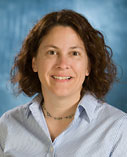
As the spatial and numeric data librarian, Spatial and Numeric Data Services (SAND), Harlan Hatcher Graduate Library, Green founded and implemented a new service to the university libraries that has created a more comprehensive service for access, collection and distribution of spatial and numeric data, and active scholarly assistance and collaboration with geographic information systems (GIS). Building on the GIS service in the Map Library, she reconceived the service and the structure, and SAND was born.
Green now has successfully established SAND-North, in conjunction with the Taubman College of Architecture and Urban Planning as a second lab, with a growing North Campus audience that includes an ever-increasing diversity of disciplines. She has provided a programmatic structure for SAND’s growth on both campuses that capitalizes on the strengths of librarians and the communities they serve, by creating partnerships with experts from different disciplines, making SAND a home for interdisciplinary spatial investigation.
Data collection, particularly spatial data, can involve a high degree of cooperation with government for acquisition and use rights. Locally Green has established working relationships with the spatial and numeric labs on the university campus, the GIS units in most of the Southeastern Michigan Council of Governments counties, and the cities of Detroit and Ann Arbor, in addition to corresponding with a number of international governments for data sets.
Green has used managerial experience from previous careers to coach and mentor new librarians and to suggest and carry out plans with more seasoned colleagues. She relocated the SAND Central Lab to the library’s Government Document Center for maximum synergy between two units that have significant content overlap. She also located a new home for a Web-mapping service for the Herbarium, migrating the content and creating extensive documentation and training tools for the Herbarium staff, and then co-authored a peer-reviewed publication about it with her interns.
Collegiate Research Professorship Award, Stephen Bougher
A researcher of international standing, Stephen Bougher, Andrew F. Nagy Collegiate Research Professor, Department of Atmospheric, Oceanic and Space Sciences, CoE, has greatly advanced knowledge of planetary atmospheres. He is the foremost expert on the chemistry, energetics and dynamics of the upper atmospheres of Venus and Mars. Furthermore, he has significantly promoted and contributed to the mission of NASA’s Mars Exploration Program.
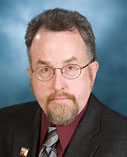
In his early research Bougher successfully explained the thermal structure of the upper atmosphere of Venus. He then extended his research to the atmosphere of Mars, developing the Mars Thermospheric General Circulation Model (TGCM), which is the benchmark for all such upper atmosphere models employed today.
Bougher’s models have been put to the test in his collaboration with NASA, which has relied on them to perform aerobraking of Mars spacecraft, including Mars Global Surveyor, Mars Odyssey and Mars Reconnaissance Orbiter. By analyzing the data obtained from Mars missions that used his models, Bougher has constructed a climatology of the Mars upper atmosphere. His work has become central in addressing key science questions for Mars and in the current development of the Mars program.
He also maintains his interest in Venus, participating in the Venus Express mission of the European Space Agency. Furthermore, the planetary TGCM modeling framework that he helped develop has been modified and extended to capture the chemistry, energetics and dynamics of the upper atmospheres of Jupiter and Saturn’s moon Titan.
Bougher’s research is captured in nearly 80 publications in refereed journals and he has given countless presentations at national and international scientific meetings. He also has served as senior editor for the standard reference book on the planet Venus.
As the expert on the atmosphere of Mars, Bougher is a regular appointee to the major advisory committees of NASA and the National Research Council. He is the recipient of numerous awards within U-M and CoE.
He contributes to the advancement of science not only through his own research but through the direction and mentoring of students and post-docs, and through his participation in the science community’s activities, including time-consuming tasks such as reviews, panels, advisory groups, international commissions and professional societies.
Research Faculty Achievement Award, Robert Schoeni
Robert Schoeni, research professor, Survey Research Center, Population Studies Center, ISR; professor of economics, Department of Economics, LSA; and professor of public policy, Gerald R. Ford School of Public Policy, is a scientist whose vision has facilitated the collection and dissemination of the most influential data available in the social sciences. Not only have his individual scientific contributions been considerable; even more importantly, his leadership on the widely used Panel Survey of Income Dynamics has provided the tools and ideas necessary for an entire generation of scholars to move forward on economic and demographic research.
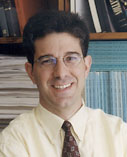
An economist and demographer, Schoeni has become more interdisciplinary over time, bringing to bear the methods and knowledge of different disciplines to a variety of problems. His contributions to economics began with work on family transfers in which he demonstrated that whereas during their lifetimes parents tend to target transfers to their less well-off children, inheritances tend to be divided equally among children.
Another major area of Schoeni’s research has concerned the question of whether disability among the aged has been declining over time.
Perhaps Schoeni’s most important and lasting contribution is his leadership on the Panel Survey of Income Dynamics (PSID), which under his stewardship has moved into the 21st century. Under his guidance the PSID has improved in content, accessibility and usefulness, and now is the key instrument in a growing number of important projects. He has shaped the survey’s content and in doing so has shaped much future research in the social sciences.
The PSID recently has expanded scientific inquiries into the strong connections between health and socio-economic phenomena over the entire life course, from childhood to later life stages. Schoeni has worked with the PSID’s team to expand the data on consumer expenditures and also health status and behaviors, thus opening up new opportunities for advances in science. The PSID has been named as one of the National Science Foundation’s “Nifty Fifty,” the only social science project to receive this distinction.
Schoeni serves on a National Academy of Sciences panel on the Census Bureau’s Dynamics of Economic Well-Being System, and he founded the NIA-supported TRENDS Research Network, whose mission is to foster collaborative research around the world by conducting research and evaluating trends in old-age disability.
Research Faculty Recognition Award, Daniel Kruger
Daniel Kruger, research assistant professor, Department of Health Behavior and Health Education, SPH, has very quickly become known as one of the premier minds in the field of evolutionary psychology. His work spans the spectrum from purely abstract or theoretical to highly applied research with relevance to everyday life.
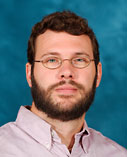
While his research has progressed along several trajectories — addressing issues such as evolutionary themes in Victorian literature, methodological issues in community research and time perception from an evolutionary perspective — his work on male propensity for risk from an evolutionary perspective may be his best known. It has appeared in many publications, and it has been highly publicized in media outlets such as CNN, NBC, BBC, the New York Times and the Washington Post.
Despite the absence of natural niches for his original kind of research, Kruger has stayed true to his mission of bringing evolutionary biology to bear on human psychology and social issues. Extending from his initial collaborative research examining mortality patterns from an evolutionary perspective, he has gone on to look at specific causes of mortality, variations across countries, changes in patterns over the past century and, most recently, changes rising from economic transitions in Europe. His work demonstrates that the tendency for males to experience early mortality during young adulthood (at disproportionately higher rates than females) is best explained by an evolutionary perspective focusing on male-male competition as a core feature of our species during life stages most associated with mate acquisition.
In 2008 and 2009 Kruger published nearly 20 peer-reviewed papers, and he has given numerous invited talks.
As a research scientist with the Prevention Research Center of Michigan, Kruger has worked with community activists and grassroots leaders to develop research surveys and projects aimed at improving community health. Using his community-based participatory background and his expertise in survey design, he led a university-community partnership in developing the Racism and Health Disparities Survey. His contributions have had a direct impact on the community in Genesee County.
Kruger serves as an invited board member of the NorthEastern Evolutionary Psychology Society (NEEPS) and is its media officer. He also recently was appointed as co-editor of the newly developed Journal of Social, Evolutionary, and Cultural Psychology, NEEPS’ official journal.
Research Faculty Recognition Award, Sooryanarayana Varambally
A cancer researcher at the Michigan Center for Translational Pathology and Department of Pathology, Sooryanarayana Varambally, research assistant professor, Michigan Center for Translational Pathology, Department of Pathology, Medical School, has been a team player in the fight against cancer. He has contributed his expertise in cell biology to addresses multidisciplinary, clinical questions in cancer development. Currently, he leads and mentors a cancer biology research group whose primary focus has been to unravel the molecular mechanisms of cancer development, with a special interest in prostate and breast cancer.
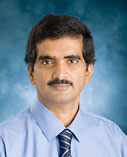
Working in association with Arul Chinnaiyan, professor of pathology and urology, Varambally contributed to a clinically significant study that defined prognostic gene expression signatures for prostate cancer through the identification of several key biomarkers for prostate cancer progression. Published in Nature in 2001 and extensively cited, it has been well received by the scientific community and is regarded as a key work in the field. A subsequent follow-up study, also published later in Nature during 2002, focused on characterizing EZH2 as a specific biomarker of aggressive prostate cancer. This work was highlighted in Nature “News and Views.”
Varambally also was involved in identifying the role of EZH2 in breast cancer progression, a finding that has potential therapeutic implications. He recently published a paper in Science describing the mechanism of deregulation of this key cancer gene. He was, furthermore, a member of the U-M team responsible for the discovery of androgen-regulated, recurrent gene fusions in prostate cancer, which is considered by many in the scientific community to be the causative molecular lesion of this highly prevalent disease. This published research, in Science, has had a direct impact on the field of oncology, with particular importance to the field of solid tumor research. In 2007 the team was awarded the Inaugural American Association for Cancer Research Team Science Award for this discovery.
Varambally has co-authored more than 60 articles, with more than 30 produced in the last four years.
He currently is the principal investigator on sponsored research grants from Gen-Probe Inc. and Glaxo-Smith Kline. He also is co-investigator for several NIH and DOD grants.
Beyond his research activities, Varambally is a member of the Advisory Committee on Primary Research Appointments, Promotions and Titles.

